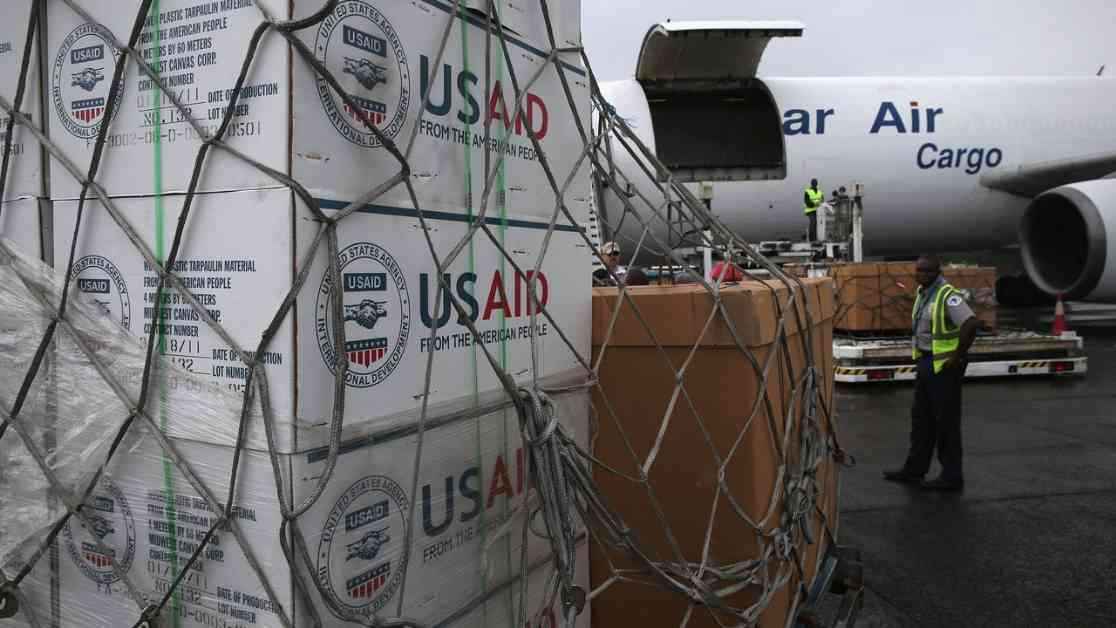Unprecedented Federal Freeze: Deciphering the Chaos of U.S. Assistance Programs
In a stunning turn of events on Monday, January 27th, the United States Office of Management and Budget (O.M.B.) issued a directive that sent shockwaves through the nation. The directive mandated a sweeping freeze on trillions of dollars in federal grants, loans, and other financial assistance programs. The reason? The Trump Administration sought to review agency programs and determine the best utilization of funding. The halt on payments was set to commence the following day, Tuesday, January 28th, at 5 P.M.
The directive’s ripple effect was immediate and far-reaching, plunging the federal assistance landscape into uncertainty and chaos. The freeze appeared to encompass nearly every federal program impacting people’s lives, with only Social Security and Medicare exempted. A staggering 2,600 programs were identified as affected, including critical areas such as law enforcement grants, community health centers, special education programs, and Meals on Wheels for seniors. Even Medicaid payments to states, initially promised immunity, ground to a halt.
As the clock ticked towards the 5 P.M. deadline on January 28th, a federal judge intervened, temporarily blocking the freeze. The legal intricacies and implications of the freeze remained murky, shrouded in uncertainty and confusion.
A week preceding the directive, a foreshadowing of the impending chaos emerged. On January 20th, amidst a flurry of executive orders following the Inauguration, President Trump signed an order pausing new foreign aid spending commitments for ninety days. The newly appointed Secretary of State, Marco Rubio, further exacerbated the situation by halting existing programs and new awards across the State Department and the U.S. Agency for International Development (U.S.A.I.D.).
The ramifications of these freezes reverberated across the globe, impacting critical initiatives that have long been the cornerstone of bipartisan efforts in Congress. Foreign aid, a linchpin of national security, diplomacy, and defense, was abruptly suspended. Collaborative programs combating global diseases, human trafficking, and educational initiatives worldwide ground to a halt, leaving countless lives hanging in the balance.
The aftermath of the freezes was poignant and profound. Michael Schiffer, a former U.S.A.I.D. official, underscored the gravity of the situation, emphasizing the irreversible consequences of halting crucial programs. The abrupt cessation of U.S.A.I.D.’s operations, including personnel purges and communication embargoes, painted a grim picture of the devastation wrought by the Administration’s actions.
The human toll of the freezes was starkly evident in the health sector. Programs combating infectious diseases, such as the Marburg virus outbreak in Tanzania, and initiatives eradicating polio worldwide bore the brunt of the freezes. The suspension of critical health services and life-saving interventions left millions vulnerable and exposed, a stark departure from America’s longstanding leadership in global health initiatives.
As the dust settled, Secretary Rubio issued a waiver partially rescinding the foreign aid funding freeze, albeit with ambiguous terms and limited scope. The waiver’s temporary nature and arbitrary definitions of “life-saving” programs left many critical initiatives in limbo. The shadow cast by the freezes loomed large, threatening to dismantle America’s global leadership and expertise in health and beyond.
The broader implications of the federal freezes extended beyond health, signaling a troubling trend of dismantling critical agencies and programs. The Administration’s systematic dismantling of federal agencies and programs, despite bipartisan support and congressional funding, underscored the fragility of America’s commitment to the common good.
In conclusion, the federal freezes on assistance programs have unraveled a web of chaos and uncertainty, exposing vulnerabilities and fissures in America’s global leadership and capacity for impact. The road ahead remains fraught with challenges, as the nation grapples with the aftermath of these unprecedented directives.












